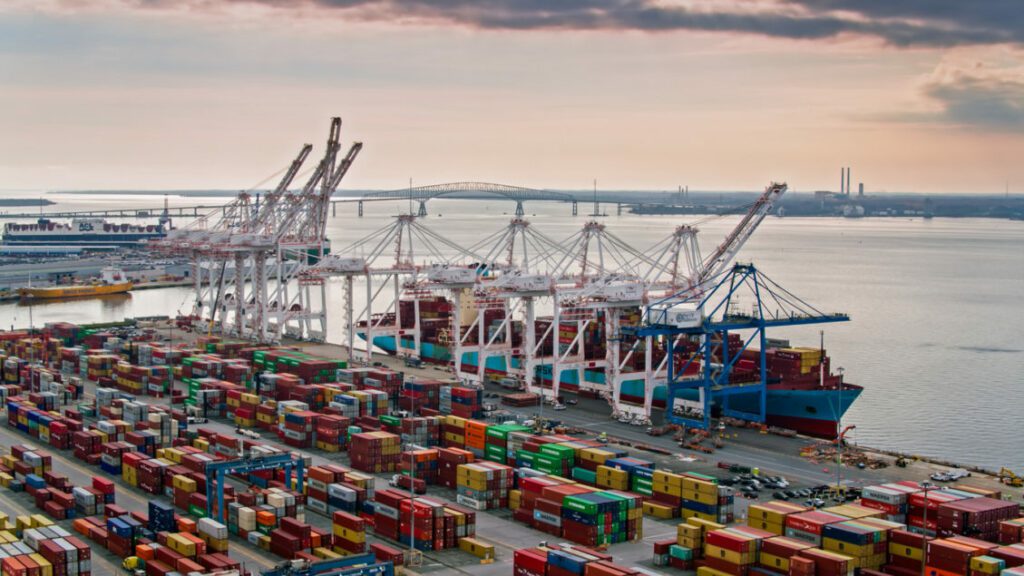North American supply chains are facing a uniquely concerning labor crisis, with simultaneous strikes from Canada’s rail workers and U.S. East Coast and Gulf Coast longshoremen appearing more likely each day.
“The possibility of both strikes happening around the same time is becoming a real concern,” says Freight Right Global Logistics CEO Robert Khachatryan, noting that negotiations between the International Longshoremen’s Association (ILA) and the U.S. Maritime Alliance (USMX) have been “particularly intense.” The union has been pushing back on the rise in automation at ports, while seeking wage increases that outpace their West Coast counterparts.
Canada’s rail workers have shown they’re not afraid to strike as well, Khachatryan points out. Unionized Canadian National Railway (CN) workers went on an eight-day strike in 2019, Teamsters with Canada Pacific Railway (CP Rail) conducted a one-day strike in 2018, and locomotive engineers and conductors with CP Rail went on strike for more than a week in 2012.
Now, CN and Canadian Pacific Kansas City (CPKC) have been locked in a standoff with Teamsters Canada Rail Conference (TCRC) for months. Although the railways and TCRC recently restarted negotiations on a new collective bargaining deal, little progress has been made ahead of an August 22 deadline to reach an agreement. In the meantime, the railways have already started halting shipments of hazardous materials, and issued a lockout notice to rail workers if a deal isn’t reached in time, while TCRC issued a strike notice of its own on August 18.
Negotiations between the ILA and USMX have been similarly tense. The ILA’s members are meeting September 4-5 to review final contract demands, and prepare for a possible strike ahead of an October 1 deadline to reach a deal. Talks between the ILA and the USMX have been on hold since June, after the union found out that autonomous systems were being used at a handful of ports to process trucks.
As for what happens in a scenario where Canada’s rail workers and the ILA both go on strike within weeks of each other, the consequences would be felt across the continent.
“A simultaneous work stoppage will create chaos in North America,” says Margaret Kidd, an associate professor and director for the University of Houston’s supply chain and logistics program. “Estimates on the port side indicate a one-week strike would take four to six weeks to clean up — you can do the math and see that a prolonged strike would take us into 2025 to play catch up.”
Kidd predicts that ultimately consumers will pay the price for any work stoppages, given that strikes in these sectors typically lead to congestion at ports, and higher freight rates that get passed down the line to consumers. The fallout would be especially prominent for the agriculture and automotive industries, with grower coalition Pulse Canada estimating that 80-85% of the country’s agricultural products are moved by train. According to data from Automotive Logistics, the Port of Baltimore also handles more imported cars and trucks than any other port in the U.S., followed by Georgia’s Port of Brunswick and the Port of New York and New Jersey.
Ahead of looming deadlines for all parties, it’s unclear whether either situation will resolve in time to avert these twin crises, or even how long any potential work stoppages might last. And although both the ILA and Canada’s rail unions have a history of drawn-out negotiations, “past negotiations have often ended with a deal because everyone knows a prolonged strike would hurt all sides,” Khachatryan says.
“So, while there’s hope for a resolution, nothing is guaranteed,” he adds.
Source link : http://www.bing.com/news/apiclick.aspx?ref=FexRss&aid=&tid=66cded6fc88a42a4bda150f7f02c419a&url=https%3A%2F%2Fwww.supplychainbrain.com%2Farticles%2F40231-twin-strikes-at-us-ports-canada-railways-would-create-chaos-in-north-america&c=4574460325760009720&mkt=en-us
Author :
Publish date : 2024-08-19 17:00:00
Copyright for syndicated content belongs to the linked Source.
